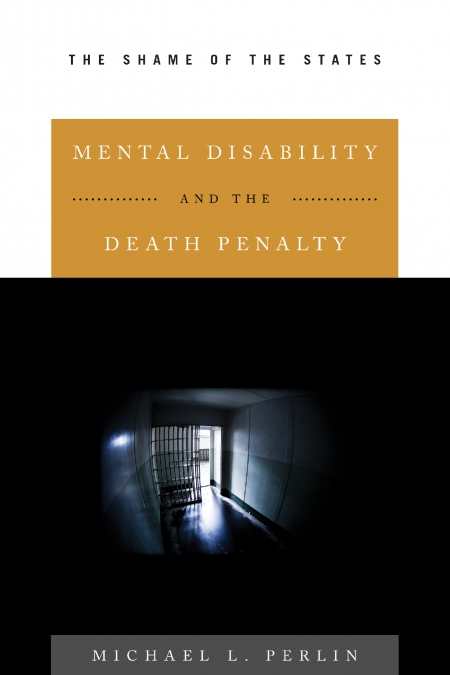Mental Disability and the Death Penalty
The Shame of the States
Mental Disability and the Death Penalty, by Michael L. Perlin, is an impressive, first-of-its-kind offering.
Perlin states the impetus for his research in the book’s introduction: “There is no question that the death penalty is disproportionately imposed on cases involving defendants with mental disabilities (referring both to those with mental illness and those with intellectual disabilities, more commonly referred to as mental retardation).” From there, Perlin dissects court cases and law studies that suggest why and how the problem has developed. He synthesizes the data and adds his insights in order to equip readers to identify ways to help solve the problem.
Each chapter examines key issues that often arise in death-penalty cases such as sanism, pretextuality, future dangerousness, and factual innocence. Citing numerous sources, Perlin meticulously examines how and when mental illness complicates and mitigates the requirements of the justice system—and the quest for true, adequate justice.
Not only does he examine the intricacies of the law, but he also looks at the complications of jurors’ perceptions of the mentally ill and the effects different types of evidence have on jurors—such as whether neuroimaging may carry disproportionate weight with jurors because its visual nature is more interesting than clinical testimony.
The book is impeccably well documented, with over one hundred pages of notes and bibliography (articles, books, and court cases) at the end of the book.
The account is bolstered by the author’s extensive legal background; he’s been a law professor, a legal representative for patients in psychiatric care, and the director of the New Jersey Division of Mental Health Advocacy. As a lawyer, Perlin relies more on research than personal experience or anecdotal evidence—a solidly academic approach. While he feels this phenomena is clearly tragic, the book is unequivocally unemotional in its presentation. Those with a more sociological background may find this method cold, but it’s the most effective tool at Perlin’s disposal. It’s perfect for readers with a legal background or those interested in or studying the legal system. Lack of familiarity with legal jargon makes it a very dense read for the uninitiated.
Overall, the book is a compelling, rational examination that motivates readers to seek a more equitable form of justice that involves bold thinking and greater attention to the intricacies of the court system.
Reviewed by
Melissa Wuske
Disclosure: This article is not an endorsement, but a review. The publisher of this book provided free copies of the book to have their book reviewed by a professional reviewer. No fee was paid by the publisher for this review. Foreword Reviews only recommends books that we love. Foreword Magazine, Inc. is disclosing this in accordance with the Federal Trade Commission’s 16 CFR, Part 255.

